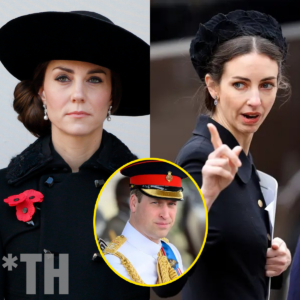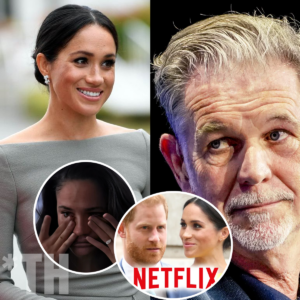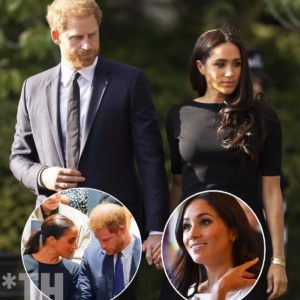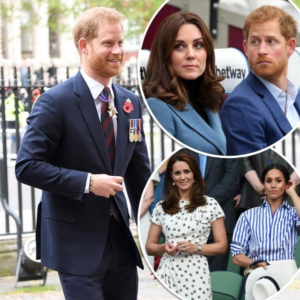
Renowned chef and restaurateur Gordon Ramsay recently made headlines by announcing his decision not to seat members of “The View” at his upscale restaurant. In a candid statement, Ramsay described the show’s hosts as “loud and divisive,” expressing concerns about their potential impact on the dining experience of other patrons.
Ramsay’s refusal to accommodate “The View” members sparked a debate about the intersection of celebrity culture and restaurant etiquette. While some applauded Ramsay for prioritizing a peaceful dining atmosphere, others criticized the move as discriminatory or politically motivated.
The controversy reignited discussions about the responsibilities of public figures in shaping social interactions and the boundaries between personal beliefs and professional conduct. As Ramsay’s restaurant policy continues to draw attention, it underscores broader conversations about inclusivity, diversity, and the role of public figures in navigating sensitive issues in today’s society.
Celebrity chef Gordon Ramsay’s recent announcement regarding his restaurant’s policy towards hosting members of the talk show “The View” has sparked a heated debate about the delicate balance between celebrity culture, professional conduct, and social responsibility.
In a bold move, Ramsay took a stand against accommodating the hosts of “The View” at his upscale restaurant, citing concerns about their potential to disrupt the dining experience for other patrons. His decision, outlined in a candid statement, reflects his commitment to maintaining a peaceful and enjoyable atmosphere for all guests.
However, Ramsay’s stance has not been without controversy. While some have praised his dedication to creating a harmonious dining environment, others have raised questions about the motivations behind his decision. Critics argue that Ramsay’s refusal to seat “The View” members may be perceived as discriminatory or politically motivated, sparking a broader discussion about the responsibilities of public figures and the boundaries between personal beliefs and professional conduct.
At the heart of the debate is the question of inclusivity and diversity in public spaces. By choosing not to accommodate certain individuals based on their public persona or affiliations, Ramsay’s decision raises concerns about the potential exclusion of certain groups from the dining experience. In a society that values inclusivity and equality, such actions can be seen as contradictory to these principles.
Moreover, Ramsay’s decision highlights the complex intersection of celebrity culture and social interactions. As public figures, celebrities like Ramsay wield significant influence over public opinion and social norms. Their actions and statements are often scrutinized and interpreted as reflections of broader societal values. In this case, Ramsay’s refusal to host “The View” members sends a powerful message about his stance on certain social and political issues, whether intentional or not.
However, the controversy surrounding Ramsay’s decision also serves as a reminder of the importance of respecting individual beliefs and choices. While public figures may have the right to establish boundaries in their professional spaces, it is essential to consider the potential implications of such decisions on broader social dynamics. In a diverse and interconnected world, fostering inclusivity and understanding should be prioritized over exclusion and division.
As the debate continues to unfold, it raises important questions about the role of public figures in shaping social interactions and navigating sensitive issues in today’s society. While Ramsay’s decision may have ignited controversy, it also serves as a catalyst for meaningful dialogue about the values and principles that guide our interactions in public spaces. Ultimately, it is through open and respectful discourse that we can strive towards a more inclusive and equitable society for all.
News
Thomas Markle ‘so sad’ he won’t join Prince Harry and Meghan Markle for special occasion
Thomas Markle has been estranged from his youngest daughter Meghan Markle since shortly after her wedding to Prince Harry in 2018. Thomas Markle has never met neither…
Rose Hanbury breaks silence to answer allegations over Prince William affair
There have been an untold number of well-publicized royal scandals over the years, many points in history where the ongoings of the British monarchy have dominated newspaper…
Netflix CEO Snubs Sussexes’ $100 Million Deal: Meghan Markle Faces Rejection from Streaming Giants
SO, BACK IN 2020, MEGXIT HAPPENED. HARRY AND MEGHAN DECIDED TO STEP BACK FROM ROYAL DUTIES, CITING PRIVACY CONCERNS AND A DESIRE FOR INDEPEN… So, back in…
Man Claiming to Be King Charles & Queen Camilla’s Son Speaks Out on DNA Test — Details & His Photos
An Australian’s quest for royal recognition takes a dramatic turn, with a plan to compare DNA with a royal family member at the center. Amidst a backdrop…
Prince Harry and Meghan Markle reportedly face their titles being STRIPPED with the Royal Family’s silent approval
The Palace has be warned that a potential move could spark backlash from the public if it’s given the go ahead. A royal expert has claimed that…
Meghan Markle thinks Prince Harry is making ‘big mistake’ by reaching out to Princess Kate
Meghan Markle is reportedly worried about Prince Harry attempting to reunite with his sister-in-law, Princess Kate, following the news of her cancer diagnosis, as he prepares for…
End of content
No more pages to load





